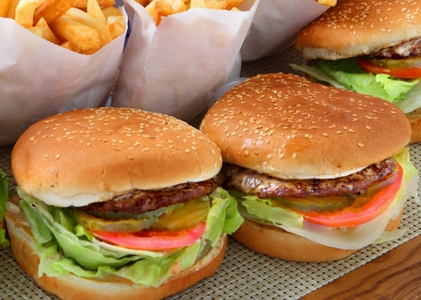
Perhaps know people who can eat hamburgers and milkshakes every day without gaining weight, but a single bag of French fries shows up on your hips immediately.
The difference could be in your genes.
In a new study, researchers raised about 800 mice for the first eight weeks of their lives on a nutritious chow that derived just six percent of its calories from fat. For the next eight weeks, mice were given high-fat, high-sugar food that mimicked a fast-food diet, with 32 percent of its calories from fat and 25 percent from sugar.
The junk-food diet affected animals in wildly different ways, the researchers report today in the journal Cell Metabolism. In the first two weeks of eating the rich stuff, for example, some mice doubled their body fat percentage, while some gained no body fat at all. By eight weeks in, some mice were 600 percent fatter, while others still hadn’t gained a thing.
After about four weeks, most mice had gained the amount of fat they were going to gain, suggesting that their genes determined a certain body-fat ceiling. And mice that were closely related to each other responded in similar ways to the fatty diet.
The animals represented more than 100 inbred strains of mice, allowing researchers to zero in on 11 regions of the genome that were linked to obesity and fat gain as a result of a high-fat diet. Some of those areas have parallels in people, suggesting that genes play a significant role in the way our bodies respond to what we eat.
"Changes in body-fat percentage after high-fat, high-sugar feeding were … highly heritable, suggesting that dietary responses are strongly controlled by genetics," said Jake Lusis, professor of microbiology, immunology and molecular genetics at the University of California, Los Angeles, in a press release. "Our results emphasize the importance of gene-by-environment interactions, with important implications for an understanding of the overall genetic architecture of obesity.”





